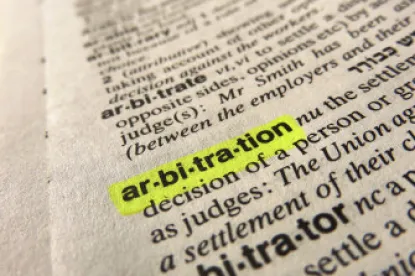It’s no secret that many employers have employees sign arbitration agreements with class and collective action waivers in the hopes of avoiding the massive wage-hour lawsuits that have become so prevalent in the past two decades.
Nor is it any secret that, following the U.S. Supreme Court’s decision in Epic Systems affirming that such agreements can be valid, even more employers have chosen to use them with their workforces.
But, in discussing with clients whether to implement such agreements, lawyers worth their salt have always told their clients this: “Be careful what you wish for because there is always the possibility that you could be hit with hundreds or thousands of individual arbitrations – and you will have to pay for each of them.”
That is because in jurisdictions like California, employers must pay all of the arbitration fees except for the filing fee itself.
They must pay the administrative fees, which typically are about $2,000 per case.
And they must also pay the fees of the arbitrator, who is often a retired judge.
From experience, the arbitrator’s fees alone for a single case are typically about $60,000, at least in California.
That, of course, does not even take into account the employer’s legal fees to defend the case or the potential exposure.
As you can see, an individual arbitration can be expensive for an employer.
Hundreds or thousands of them, at $60,000 apiece, could be back-breaking.
Knowing this, when faced with arbitration agreements with class action waivers, it’s not unusual for plaintiffs’ counsel to threaten to initiate hundreds or thousands of individual arbitrations in order to force an employer to agree to forego trying to enforce the agreements and instead defend – and settle — a class or collective action in court.
Most of the time, those threats are just that – threats.
But sometimes they are more than that, as food delivery company DoorDash has learned.
In a proposed class action lawsuit in the United States District Court for the Northern District of California alleging that DoorDash misclassified drivers as independent contractors, the named plaintiffs had arbitration agreements with class action waivers. So, too, did most, if not all, of the company’s other drivers.
More than 5,700 of those drivers wished to pursue individual arbitrations before the American Arbitration Association (“AAA”).
Faced with administrative fees alone of more than $12 million from AAA, DoorDash chose not to pay the fees, and AAA closed the matters. Typically, that would result in the cases being litigated in court, where DoorDash would escape having to pay those administrative fees, much less the arbitrators’ fees for those cases.
That was when plaintiffs’ counsel turned the tables, filing a motion to compel DoorDash to conduct more than 5,700 individual arbitrations pursuant to the terms of its own arbitration agreements.
DoorDash’s strategy to try to escape the arbitration to which it had agreed by not paying the fees to AAA did not sit well with Judge William Alsup.
In sometimes harsh language in which he spoke of the “hypocrisy” of DoorDash trying to enforce the arbitration agreements when it suited the company but avoid arbitration when it did not, Judge Alsup ordered DoorDash to conduct individual arbitrations for 5,010 of its drivers, excluding the remaining 700-plus drivers for technical reasons.
Let me save you from doing the math. If you assume that the company were to have to pay $60,000 in arbitrator fees for each of the 5,010 individual arbitrations, the arbitrators’ fees alone would be more than $300 million.
It seems highly unlikely that DoorDash would agree to pay such sums, and more likely that it will either try to find a way to appeal the order or resolve the claims on a classwide basis before the arbitrations commence.
Whatever happens next, and whatever the ultimate outcome, Judge Alsup’s order should be read by all employers that have implemented arbitration programs or are considering doing so because it succinctly demonstrates how employers must “be careful what they wish for” when it comes to such agreements.



 />i
/>i

